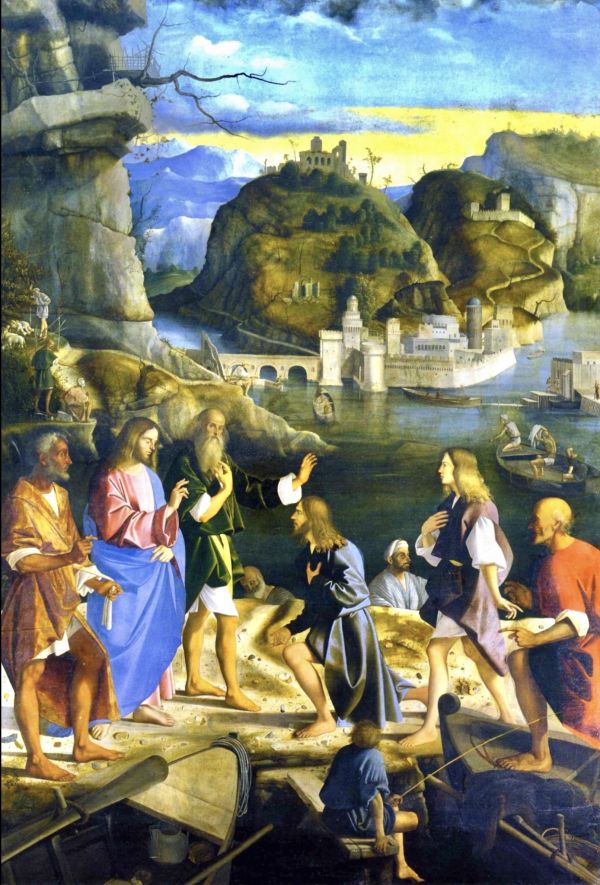Fishermen: not backward, nor fashionable
(Mk 1:14-20)
The Kingdom is close if thanks to our involvement God comes to earth and Happiness knocks at the door, addressing us to something profoundly new.
It’s not the call of the boss, but the invitation of the Friend, who lives firsthand what he announces, exposing himself.
His «Good News» (v.15) reveals a divine face opposite to that preached by official guides: the Father does not absorb our energies, but gives them in fullness and free.
«Convert yourselves and believe in the Gospel» is in fact an hendiadys: the two coordinated terms «convert and believe» express the same meaning. But not in a separatist or doctrinal sense.
The Baptist purported to ‘prepare’ the Coming of the Messiah; Jesus proclaims the Kingdom already present, therefore simply to be ‘welcomed’, to live fully.
The invitation to convert themselves means precisely: «Turn the scale of values!».
There is a freedom to be regained, but the scene is rapid, because the young Master teaches with life.
To Abraham God says «Go towards the land that I will show you». Jesus does not say «Go», but «Come».
Abraham is just one sent; the disciple of Christ on his way proposes a Person, his whole story.
He’s interested in real life: he doesn’t advocate a return to worship that should have patch up the ancient practice.
«Fishers of men»: the meaning of the expression is clearer in Lk 5:10 [Greek text].
Our mission is ‘to lift to the life’ those who no longer breathe, suffocate, enveloped by impetuous waves [forces of negativity].
The real task is to get them out of the polluted environment where they live in a dehumanizing way. By placing in transparent water, with values that are no longer those of self-absorbed and corrupt society - habitat of obsessive blocks, useful only to strong and cunning ones.
It’s fundamental to abandon the «nets» (v.18): what encloses, prevents, arrests. Also the «boat» (v.20), that is, the way of managing work.
Even the «father» (v.20): the imposed tradition that clouds the new Light.
“Meshes” to be broken. In fact, the Christ must begin far from the observant region and the holy city [Judea, Jerusalem].
It means a new approach.
To give these unprecedented impulses, Jesus does not choose sacred environments, nor does he designate someone with the title that belongs to Him only: «Pastor».
He knows well that we need attention, not of leaders, teachers, directors of the "flock".
The theme is precisely in key of Exodus: the allusion to the «sea» [actually a lake] is clear.
‘Forward’ «Conversion» that Jesus proposes is not about a devout return to the Temple, but a change of mentality and orientation.
And «Kingdom of God» doesn’t allude to a world "in" Heaven: there is no mention about afterlife, but of areas in which the Beatitudes are lived.
No submission of consciences: Orientation without the punishments of the religion that mortifies.
'Route forward' without the backstory: every trajectory is personal. And fashion has nothing to do with it.
Guidance that draws every soul into unique exploration and action, towards a total ideal.
[Monday 1st wk. in O.T. January 13, 2025]












